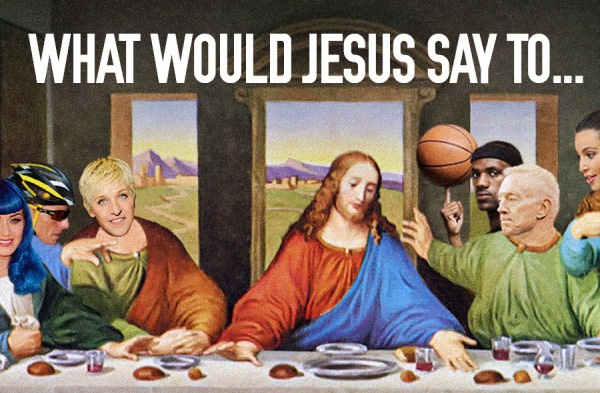If worship is going to the theater, the congregation is not the audience
Rev. Dr. Todd Renner shared with a workshop he was co-leading something from Kierkegaard and his metaphor of worship as theater. I have not read Kierkegaard to know the context of this metaphor, and I have not taken time to look the source up, but here is how Dr. Renner shared it to our group.
There were three aspects of traditional theater:
- Audience
- Actors
- Prompter (situated out so to cue the actors if they forget a line)
In worship it is commonly understood that:
- The congregation is the audience
- The preacher is the actor
- God is the prompter - provoking/inspiring the actors
Kierkegaard used this metaphor but argued:
- The congregation is the actor
- The preacher is the prompter
- God is the audience
I am not sure what to make of this at this time, it really is just something to meditate on and consider the role of worship in our lives. Consider what role you fill and where you see God in it all.
Reasons why young people seeking old ways of church - commentary
The other day this post, 5 Reasons Why Young People Are Seeking Old Ways of Doing Church. While it is a broad brushstroke, as most blog posts are (including my own), it embodies something for me that has rang true for my experience and those I hang with.
The original post's reasons are:
- Authenticity
- Rootedness
- Mystery
- Icon and Symbolism
- Participation
Rev. Dr. Leonard Sweet has argued for a long time that we are living in E.P.I.C times (Experiential, Participatory, Image Rich and Connected). As you may be able to see the five reasons above and EPIC are overlapping one another. In rough terms:
- Authenticity and Mystery as Experiential
- Participation as Participation
- Icon/Symbolism as Image Rich
- Rootedness as Connected
I can make a case that the church I serve is a church that is an amalgamation of these trends all in one place. But my situation is not unique. The interesting twist is that many mainline churches are slow to change and many can make the case that their church is also an amalgamation of these trends.
The point being that individual churches do not need to feel like they have to change and adapt to the novel if that is not who/what God is calling them to do/be. Being authentic and who you really are is more important to a person my age (and maybe any age) than being something you are not just to try to attract the "young people".
Religion Bounces Back in the Age of Novelty?
Alain De Botton's book points out that religion have at their core a sense of repetition. Be it annual feast days, repetition of the same story, recreating a previous event or common rote prayers, patterns abound in religion. In part the reason for all this repetition is due to a commonly held belief among religious types - human beings are forgetful.
This repetitive nature of religion can contribute to the feeling that religion is boring. As my high school english teacher, Mr. Ott, often quoted the Russian quip, "Repetition is the mother of learning and the father of boredom." In an effort to not be boring but instead to be fresh and new and exciting, many Christian churches have adopted a "TED" style of worship: Keep it novel every time.
There is a fear among the Christian leaders that I know that if we are not sharing something each week that is new or groundbreaking or at least something that someone did not know before then we are failing. This pressure leads to some seriously cheesy sermon series all in an attempt to be novel.



However I wonder if it is possible that because we are in an age of novelty that religion will see more people interested in it. As the non-fig based cookie man, Newton said, "Every action has an opposite and equal reaction."
We are constantly hammered with the "new" and the "latest" and the "breaking" the "update" that we become overwhelmed by all that we don't know. My list of books that I want to read grows four times as fast as the list of books that I have read. To which Botton states:
"We feel guilty for all that we have not yet read, but overlook how much better read we already are than Augustine or Dante, thereby ignoring that our problem lies squarely with our manner of absorption rather than with the extent of our consumption."
Part of the beauty of religion is that if forces us to return to the same stories and messages and ideas time and time again. Christianity forces me every year to ask the question, "What the hell is happening on that cross?" and "If you cannot believe that there is a divine spark in Jesus then how will you ever believe that there is divinity in you?"
Just as the new minimalism may be a reaction to the overconsumption that defined the baby boomers, so too could religion's repetition be a reaction to the Age of Novelty?

Be the change by Jason Valendy is licensed under a Creative Commons Attribution-NonCommercial-ShareAlike 3.0 Unported License.




